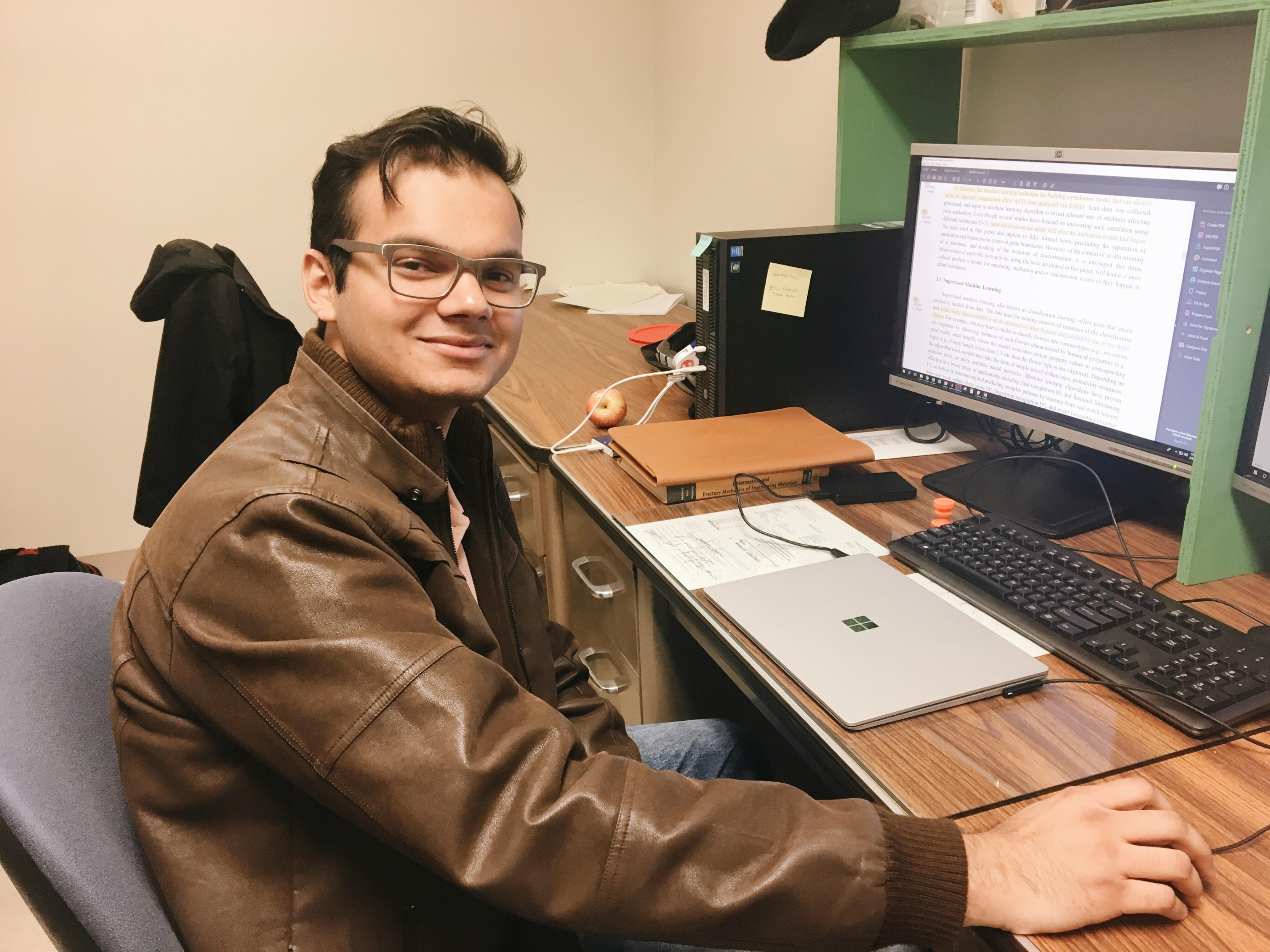
Rishabh Sharma grew up in New Delhi, India, where about 81 percent of the population is Hindu, according to the 2011 India census.
But at BYU, Sharma represents a minority of students who aren’t LDS. Despite this, he has found a way to live what he believes while making the most of his BYU experience.
Sharma is pursuing a master’s degree in mechanical engineering with an emphasis in computational material science. Sharma said he came to BYU in 2016 to intern and do research with mechanical engineering professor David Fullword, which led to his decision to pursue graduate studies here.
When deciding where to get his master’s degree, Sharma said he knew almost all BYU students are LDS, but it did not hold him back. He said the idea of living the Honor Code was never hard for him because he already lives the values it outlines.
“I am in line with the Honor Code because there are a lot of similarities between my culture, Hinduism and Mormonism,” Sharma said. “Some similarities I’ve found in beliefs are chastity, no drinking and smoking, the sense of family and a lot of other things.”
Sharma also said he has felt extremely welcomed by coworkers, classmates and people in his YSA ward.
“One thing that’s great about my ward and people I’m working with is they do have different beliefs sometimes,” Sharma said. “But they don’t really impose their beliefs on me. I’m free to think what I want to think or whatever I want to believe or not believe.”
Josh Fuller, a BYU student and one of Sharma’s close friends, said he admires Sharma’s standards.
“He follows all the (LDS) church standards with ease, and his reasoning is that living those standards makes you happy,” Fuller said. “Basically, he loves getting to know and serving others, he is responsible and he is a great example of the BYU standards.”
Sharma also said he loves to socialize and get to know people better, even though his schedule as a graduate student is crazy. Because of this, he attends activities, service projects and church with his ward.
Kirstin Smith, a member of Sharma’s ward, said he not only socializes; he also organizes fun activities to get other people to socialize. She said he helped organize a lip sync battle with some friends.
“He is always really good at making people get together to do things and be involved in planning activities,” Smith said.
Many of his ward members are amazed by how active he has been, both socially and in the ward.
Fuller said Sharma goes to almost every ward activity, goes to church nearly every week and stays for all three hours, counsels with his bishop and is the first person to arrive at service projects.
Sharma’s friend Kassidy Bowen said he is so immersed in the BYU culture that she could not have guessed he isn’t LDS.
“For the first several weeks that I knew him, I just thought he was LDS because I’d see him at all the activities,” Bowen said. “It’s BYU. You just kind of assume.”
Sharma’s friends agreed he has never had a problem respecting their beliefs, even when they are different from his. Sharma said Hindus don’t have strict beliefs about which manifestation of god people should worship. They have many manifestations of god, and one can choose their preferred form of god to worship. To Sharma, Mormons worshipping their God is an example of another preferred manifestation.
Fuller said Sharma is not afraid to share his beliefs.
“He expresses that his beliefs are different from ours during meetings but makes comments when the topic is relevant to him,” Fuller said. “For example, when we talk about family and parents, he has a lot to say.”
Sharma’s friend Anna Zapalac said she thinks the cultural differences make him unique.
“He’s diverse and he always offers such interesting viewpoints on life that Americans typically wouldn’t hear,” Zapalac said. “He makes life interesting.”
One of these unique viewpoints is a belief in karma. Sharma explained that Hindus believe each person starts from the same place and “go up” according to their actions within their lifetime. He also said he believes in reincarnation.
According to the textbook “Religions” by Philip Wilkinson, karma is the moral law of cause and effect. Wilkinson says Hindus believe it takes more than one lifetime to achieve perfection, so they look forward to reincarnation. An individual’s karma contributes to how “good or bad” their next life will be.
“In a lifetime, a person cannot just do good or just do bad,” Sharma said. “So, there are different outcomes of different actions. Everything adds up and, in the end, according to their karma, they get their result. You will get rewarded in your next life.”




